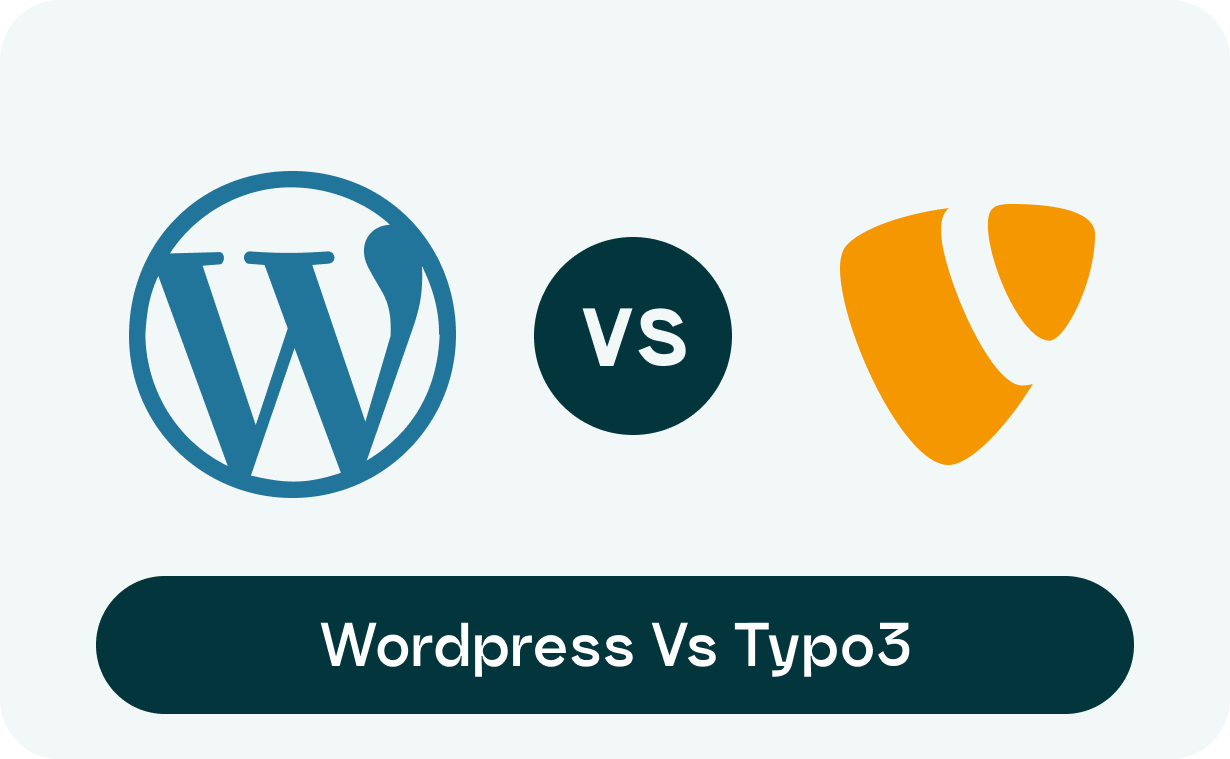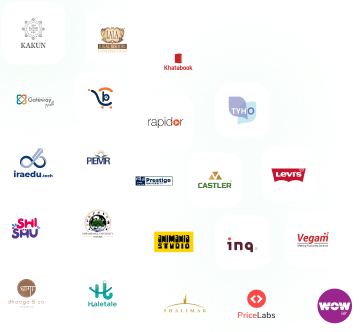WordPress vs TYPO3: A Detailed Comparison Guide for 2025
Choosing the right content management system (CMS) is one of the most important decisions for your digital presence. With hundreds of options available, WordPress and TYPO3 stand out as two of the most prominent platforms. However, they cater to different user needs and business requirements.
In this comprehensive guide, we’ll compare WordPress and TYPO3 based on ease of use, features, flexibility, SEO, scalability, and more to help you decide the right platform for your needs in 2025.
Overview of WordPress
WordPress is the world’s most widely used CMS, powering over 43% of all websites. It offers a versatile environment for blogs, corporate websites, portfolios, and eCommerce platforms.
Key Features:
- Beginner-friendly interface
- Thousands of themes and plugins
- Built-in blogging system
- WooCommerce for online stores
- Flexible and customizable
- Large global community
Overview of TYPO3
TYPO3 is an open-source enterprise-grade CMS popular in Europe. It’s ideal for complex, multilingual, and large-scale digital platforms requiring advanced permissions and workflows.
Key Features:
- Advanced user and content permission system
- Multi-language and multisite support
- Built for scalability
- Strong security and performance focus
- Tailored for enterprise-level websites
- Built-in features that reduce reliance on plugins
Feature Comparison Table
| Feature |
WordPress |
TYPO3 |
| Target Users |
Beginners to Enterprises |
Enterprises, Governments, Agencies |
| Usability |
Very user-friendly |
Steep learning curve |
| Customization |
Extensive (themes/plugins) |
Extensive (built-in/configurations) |
| SEO Tools |
Excellent via plugins |
Built-in SEO features |
| eCommerce |
Supported via WooCommerce |
Requires extensions or integrations |
| Multilingual Support |
Plugin-based |
Built-in |
| Scalability |
Medium to High |
Very High |
| Security |
Good with plugins |
Excellent enterprise-level security |
| Community Support |
Massive global support |
Smaller, focused professional support |
| Cost |
Free core, paid themes/plugins |
Free core, high dev/hosting costs |
Target Audience
WordPress is ideal for:
- Bloggers and small business owners
- Startups and freelancers
- Developers looking for quick deployment
- Non-technical users
TYPO3 is ideal for:
- Corporations and enterprises
- Government portals and institutions
- Organizations requiring multi-language or multi-site support
- Teams with in-house development resources
Ease of Use
WordPress:
With its simple dashboard, WYSIWYG editor, and drag-and-drop builders like Elementor, WordPress is suitable for beginners. Installation and theme/plugin management are easy even without technical skills.
TYPO3:
TYPO3 is more complex and is intended for users with development experience. Configuration, content structures, and backend interfaces can be overwhelming for beginners.
Winner: WordPress (more beginner-friendly)
Customization and Flexibility
WordPress:
Offers extensive customization through themes, plugins, and a strong developer community. Almost any feature you want can be added with minimal coding.
TYPO3:
Offers high flexibility at the core level. Its configuration framework allows developers to create complex content structures and workflows, often without relying on third-party plugins.
Winner: Tie (WordPress for ease, TYPO3 for advanced custom builds)
SEO Capabilities
WordPress:
SEO capabilities are excellent with plugins like Yoast SEO or Rank Math. These offer granular control over meta titles, sitemaps, breadcrumbs, etc.
TYPO3:
SEO features like clean URLs, meta tags, and sitemaps are integrated into the core. Less dependent on third-party tools, which reduces overhead.
Winner: Tie (WordPress for plugin support, TYPO3 for built-in reliability)
WordPress:
Performance depends on hosting, theme, and plugin optimization. With security plugins and best practices, it can be very secure, but its popularity also makes it a frequent target.
TYPO3:
TYPO3 is highly secure with enterprise-level security features. It has fewer vulnerabilities due to its niche usage and strict development standards.
Winner: TYPO3 (especially for large, sensitive projects)
Multilingual and Multisite Support
WordPress:
Supports multilingual sites through plugins like WPML or Polylang. Multisite is also available but requires extra setup.
TYPO3:
Multilingual and multisite support is built into the core, making it more stable and scalable for large-scale global websites.
Winner: TYPO3
Scalability
WordPress:
Scales well with proper hosting and development support. Used by major companies but requires careful planning for enterprise-scale projects.
TYPO3:
Built for scalability. It’s an ideal choice for digital infrastructures that handle high traffic and complex site architectures.
Winner: TYPO3
Cost Comparison
WordPress:
Free to use, but costs can add up with premium themes, plugins, and managed hosting.
TYPO3:
Also free, but typically requires experienced developers, leading to higher initial setup and maintenance costs.
Winner: WordPress (lower barrier to entry)
Community and Support
WordPress:
Massive global community, extensive documentation, and thousands of developers available for hire.
TYPO3:
Smaller, more specialized community. Excellent professional support is available, but the developer pool is more limited.
Winner: WordPress (for broader community support)
Conclusion: WordPress or TYPO3?
| Use Case |
Best Choice |
| Beginner Website |
WordPress |
| Personal Blog |
WordPress |
| Enterprise-Level Project |
TYPO3 |
| Multilingual Corporate Site |
TYPO3 |
| Ecommerce Store |
WordPress |
| Government Portal |
TYPO3 |
Final Verdict:
If you need a user-friendly platform with quick deployment and endless customization, WordPress is the best choice. For complex, secure, multilingual, and scalable enterprise websites, TYPO3 is more suitable.
FAQs: WordPress vs TYPO3
1. Which CMS is easier to use, WordPress or TYPO3?
WordPress is easier to use, especially for beginners. TYPO3 has a steeper learning curve and is more suited to technical users.
2. Can I use TYPO3 for a small business website?
Yes, but it may be overkill. TYPO3 is more suited for large-scale or enterprise websites. WordPress is usually a better fit for small businesses.
3. Is TYPO3 more secure than WordPress?
TYPO3 offers enterprise-level security and is less targeted by attackers. WordPress can also be secure with the right practices and plugins.
4. Which is better for multilingual sites?
TYPO3 has built-in support for multilingual content, making it a stronger choice for global websites.
5. Is WordPress or TYPO3 better for SEO?
Both are good. WordPress offers more flexibility with SEO plugins, while TYPO3 includes solid SEO features by default.











